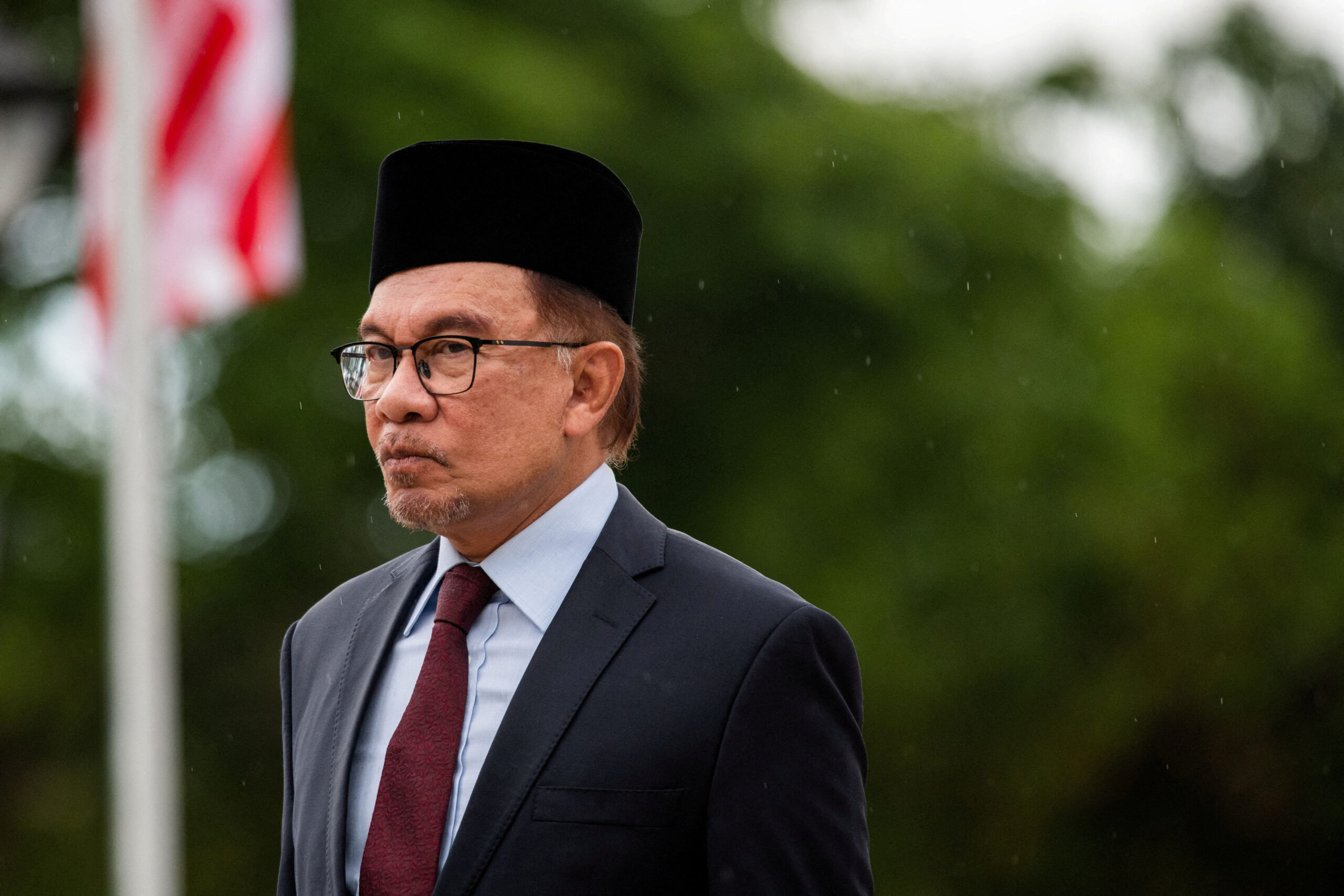Malaysia’s China conundrum
A trip to China by Malaysia’s new prime minister may bear a lot of economic fruit, but Kuala Lumpur will have to navigate Beijing’s growing tensions with the U.S. and shared territorial disputes in the South China Sea.

Malaysia is wedged between its deep economic ties with China and territorial disputes in the South China Sea, amid rising tensions with the U.S.
Malaysian Prime Minister Anwar Ibrahim visited Beijing from March 29 to April 1, and inked a slew of trade commitments with Chinese Premier Lǐ Qiáng 李强. It was his first official visit to the country since taking office in November. Yesterday, Anwar also told the Malaysian parliament that China is open to talks with Malaysia to revive plans for an Asian Monetary Fund, in a move to reduce reliance on the U.S. dollar.
Anwar had earlier said the aim of his trip was to “deepen and broaden [bilateral] relations” in his meeting with Chinese President Xí Jìnpíng 习近平 on March 31 (readout from Beijing, Kuala Lumpur).
Malaysia hedges its economic bets between two world powers
Malaysia has been one of the few countries that has benefited from the competition between China and the U.S., both of which are doubling down on diversifying their economies and trading partners. But fraying relations between the two world powers have pushed Kuala Lumpur into an even more precarious position, as it tries to maintain its deep economic ties to both countries without alienating one or the other.
China has been Malaysia’s largest trading partner for the past 14 years, with total trade hitting 487.13 billion ringgit ($110.62 billion) in 2022, up 15.6% from 2021. Meanwhile, China was the top investor in Malaysia last year, amounting to 55.4 billion ringgit ($12.5 billion), or 33.9% of foreign direct investment (FDI), last year. That was nearly double the 29.2 billion ringgit ($6.6 billion), or 17.9%, contributed by the U.S. over the same period.
Much of China’s investments have gone into segments like infrastructure and technology. Malaysia is a major beneficiary of China’s Belt and Road Initiative, and is also the world’s sixth-largest exporter of semiconductors. Those chips, the key building blocks found in everything from refrigerators to electric vehicles, have also been the target of a U.S.-led campaign to curb China’s technology sector — efforts that top chip hubs Japan and the Netherlands have recently joined.
Drilling for hydrocarbons in disputed waters
Despite pledges to deepen economic cooperation, Anwar stated that Beijing had raised concern in the meetings over Malaysia’s energy exploration projects in disputed waters in the South China Sea.
China claims the rights to a large majority of the South China Sea based on a map published in 1947 by the Republic of China government of the KMT, which was then based in Nanjing. The demarcation of the claimed area has since become known as the “nine-dash line.” While the Permanent Court of Arbitration in the Hague ruled in July 2016 that Beijing’s claims were groundless, Chinese vessels have frequently asserted their presence in contested waters within — and sometimes beyond — the nine-dash line over the past few years.
The incursions by the People’s Liberation Army Navy (PLAN), Chinese coast guard ships, and ostensibly civilian-run fishing vessels have been a bitter source of tension with other claimants to the area, including the Philippines, Malaysia, Taiwan, Indonesia, Vietnam, and Brunei. But while other countries have ramped up their defensive posturing, Malaysia has long played down the incursions and publicly declared in the past that it has chosen not to label China as a “threat,” as of yet.
In 2021, Malaysia’s state-owned oil firm, Petronas, signed a decade-long liquefied natural gas (LNG) supply agreement with China’s state-owned oil giant CNOOC, valued at about $7 billion. Petronas operates oil and gas fields in the South China Sea to drill for hydrocarbons within Malaysia’s EEZ, and has in recent years had several encounters with Chinese vessels.
“I stressed…that Malaysia sees the area as Malaysian territory therefore Petronas will continue its exploration activities there,” Anwar said when asked about the issue prior to his trip to China, without specifying any details.
“In that area there is a similar claim from China. I said [to them] that as a small country that needs oil and gas resources, we have to continue. But if the condition is that there must be negotiation, then we are ready to negotiate,” he added.
“We are ready to work together with the Malaysian side and continue to properly handle maritime disputes through dialogue and consultation,” Chinese Foreign Ministry spokesperson Máo Níng 毛宁 said today.
Meanwhile, China is pushing the Association of Southeast Asian Nations (ASEAN) for a code of conduct in the disputed South China Sea and for an upgrade in the bloc’s free-trade agreements. China and ASEAN have been working for nearly 20 years to establish a code of conduct covering the disputed body of water.






